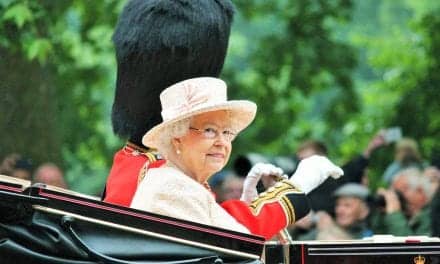One client had a breakthrough when his audiologist helped him not just hear better, but live his life to the fullest by acknowledging his mortality.
By Michael A. Harvey, PhD
I’m a psychologist who specializes in treating people with hearing loss. But that’s not my only focus. I once gave a workshop on stress management at a start-up company where the average age of the employees was 25. I looked around the room and made a private bet that I was the only one who had had a colonoscopy. What do these kids know about stress? I thought.
I smile when thinking of my self-perceived stresses as an adolescent. The pimple smack in the middle of my nose. Will Sally go out with me? Does my new shirt make me look cool? Am I too fat? Long list. Now, at the age of 71, I have different self-perceived stressors: monitoring my health, loss of significant others, money, and, of course, mortality. Also, a long list.
I was reminded by a particular client of mine that much of our quality of life is determined by how we choose to spend however many years we have left, which requires confronting our own mortality. And it was my client’s audiologist who made him realize this truism.
Accepting Hearing Loss, Embracing Life
Eighty-three-year-old Burt exemplified the challenge we humans have of aging with dignity. In one of our sessions, I asked him what he was looking forward to during the upcoming week and he proceeded to list his doctors’ appointments. “They’re compassionate and smart,” he proclaimed. He also had recently been fitted with hearing aids on the advice of one compassionate/smart doctor who told him to get his hearing tested because it would improve his quality of life.
“Why is your quality of life so important to you?” I asked. On the surface, this was an inane question.
“Why do you think?” he shot back. “Because I ain’t gonna live forever. When I talk this way to kids, they call it a ‘buzz-kill,” but it helps my buzz,” he smiled. “It gets me off my behind to do things I really want to do.”
He echoed a profound and liberating truth regarding that he “ain’t gonna live forever.” If we lived for eternity, our quality of life wouldn’t be so precious. As psychiatrist Irwin Yalom put it, “Though the physicality of death destroys us, the idea of death may save us.’”(1) This is a sobering quotation. Save us from what? Because we are acutely aware that our lives are finite, we have an opportunity to save ourselves from being distracted by what we ultimately deem to be unimportant or meaningless. Why waste precious time? Our mortality becomes an offering, a gift, for us to live intentional lives.
I was curious to hear Burt’s reflections on how improving his hearing fit into his intentional life. “Aside from your doctor’s advice, what prompted you to go to get your hearing tested?” I asked.
“Originally, to get my wife off my back,” he admitted. (A familiar refrain.) “Dr Smith tested my hearing and said I had a moderate- to-severe sloping sensorineural hearing loss, with normal hearing sensitivity through 1000 hertz. Whatever that means,” he continued. “We set up another appointment to discuss the next steps. But then I had a heart attack and ended up needing triple heart bypass surgery! Thankfully, I’m fine. After I recovered, my wife started in again about my hearing, so I went back for the second appointment.”
“Please tell me about that meeting,” I encouraged Burt.
“I expected him to continue with the hearing tests and to lecture me about my ears,” Burt told me. “But when I told him what had happened, he put down his clipboard and asked me if I would share for a few minutes a snapshot of what my near-death experience was like. I’ll always remember his last comment. He looked at me with compassion and said, ‘Experiences like that really wake you up to what’s really important, huh?’ I returned his nod.
“Then the doctor asked, ‘Does this have anything to do with why you want to hear better?’ I told him that I wanna hear better before I die. We talked about end-of-life stuff for a few more minutes and then about hearing aids. It felt really good talking to him. No offense, Mike.”
“No offense taken, Burt,” I smiled. It made sense that Burt felt “really good” about discussing his mortality with his audiologist. It wasn’t what he expected. It felt, as he put it, “above and beyond just discussing my ears.” I routinely hear from patients that they are touched by a “Hearing Doctor” taking the time to “see me as a person, not just as a pair of ears.”
In fact, that discussion served as a significant psychotherapeutic intervention even though Dr Smith was not practicing psychotherapy. In other words, their meeting was therapeutic—not therapy. Alongside Burt’s health scare, that conversation prompted him to think about his remaining life and set the stage for our psychotherapy meetings. Moreover, his audiologist’s compassion and courage to address the verboten end-of-life topic were key factors in helping Burt overcome the hurdle to improve his hearing.
Further reading: Hearing Aids May Slow Risk of Cognitive Decline in Older Adults
Audiologists Discussing Death and Dying
Dr Smith’s approach seems consistent with audiologists John Greer Clark and Kristina English’s description of counseling-infused audiologic care: that personal adjustment counseling can and should be exercised and that it does not violate professional boundaries.(2) The appropriateness and benefits of audiologists and healthcare professionals addressing the topic of death and dying have been discussed elsewhere.(3-6)
Bounded open-end questions are effective means for eliciting emotional material in a limited time frame.(4-5) Note that Dr Smith asked Burt, “In the few minutes we have, would you give me a snapshot about how you’re feeling?” Mentioning the time factor is critical for two reasons. First, particularly in these days of managed healthcare, appointments are often brief and hurried. Secondly, the bounds of time help prevent patients from unbounded emotional catharsis—“opening a can of worms”—which properly should occur in a mental health setting. After getting a glimpse of a patient’s emotional world, one can carefully make a therapy referral as needed. Guidelines for making successful mental health referrals have been discussed elsewhere.(4)
Back to Burt. I wondered what was meaningful to him. I told him about a professor who instructed us to take a pen and paper and write our life story in 10 minutes. When we gave him quizzical looks, he quickly added, “I mean only the chapter headings.” Burt thought for several moments. Finally, a twinkle came to his eyes, and he sang one verse of his favorite Frank Sinatra song:
“I’ve lived a life that’s full
I traveled each and every highway
And more, much more than this
I did it my way.”
Then Burt’s eyes dilated, and he shouted, “The title of my next life chapter is My Way, My Way. I’ll do it my way! As Ol’ Blue Eyes was fond of saying, ‘I’m gonna live till I die.’” Burt exuded a beaming smile. I imagined that Sinatra was smiling as well.
Toward the end of our session, I gave Burt some therapy homework. Although he looked forward to seeing his doctors, I asked him to come up with at least one other enjoyable activity. The next week, he reported that he had binge watched Frank Sinatra movies and even researched his life. Then Burt excitedly reported that Sinatra’s brilliant career was likely conducted with a 30–50 db hearing loss in his left ear.(5)
Apropos of Frank Sinatra, Burt came to our next session with what he termed a “My Way List.” Although his family begged him to always wear his hearing aids, he insisted on when and where he’d wear them. He refused to wear them when his sisters-in-law visited because he had no interest in understanding what they had to say. But he religiously wore them for the evening news. He was now able to understand the news broadcast (sometimes even without captions) and insisted that he not be interrupted. He also insisted on no country music being played in the house, but his wife vetoed that, and he reluctantly acquiesced. “I have to pick my battles,” he said.
I Decide, Therefore I Am
Burt’s My Way List illustrates that an important facet of aging with dignity is holding on to your right to make certain decisions. I also learned that from my 93-year-old mother who had vision and hearing loss. Previously she had been an avid reader. I kept badgering her to use audiobooks with the assistance of amplification. She steadfastly refused, reminding me that she always wears her hearing aids when I visit her. After several battle rounds, she said, “When I read books, I imagine how the characters sound: their tone of voice, vocal inflections, their whispers. Listening to an audiobook robs me of all that.” As she explained that, my mom came back to life. She explained that alongside her losses, she held on for dear life to her right to imagine how characters in a book sounded.(6) Perhaps Rene Descartes’ famous dictum “I think, therefore I am” should be modified to “I decide, therefore I am.”
Further reading: Training the Aging Brain to Understand Rapid Speech
Stay Connected
In one of our sessions, Burt mentioned that he had just attended his 8-year-old grandson Sam’s violin concert. It was his first grandchild’s concert with hearing aids. “Oh my God, I’m so sorry,” I responded. “I still cringe when I think of doing that for my daughter. Twenty third graders playing out-of-tune violins, like chalk scraping against a blackboard.” I was having a flashback.
“No, it was quite magical, something that I will always cherish,” Burt responded with a smile. “You know, several decades ago, I had front row seats to hear Itzhak Perlman perform Brahms’ Violin Concerto in D major. It took my breath away. He certainly wasn’t out of tune. But you know, Mike, I wouldn’t have missed Sam’s concert for the world, even for Itzhak Perlman.”
“I won’t tell him you said that,” I smiled.
“Oh, he would understand. He’s now 78 years old, only five years younger than me. It’s something we old people understand. You probably don’t since you’re only 71. My only regret is that I didn’t get hearing aids much sooner. When I went to my other grandchildren’s concerts trumpet, clarinet, and piano I would clap with the audience and tell them they sounded great, but I couldn’t hear anything. But I clearly heard Sam play the violin. He was an out-of-tune maestro!” Burt flashed a wide smile.
Half-Full Vs. Half-Empty
“I’ve learned an important lesson as I age,” Burt reflected. “You should be thankful for what you have and then you end up having more. If you concentrate on what you don’t have, you’ll never, ever have enough. Oprah Winfrey said that and she’s only 69! I can’t control the half-empty part of my aging life, but you know what? I’m realizing that a ton of what was important to me when I was younger isn’t really that important after all. Sure, I can dwell on not being able to play racquetball like I used to, or eating spicy foods, but I appreciate what I do have much more than I used to.”
“I’m filling up the half-full part,” he continued. “I’m using my brain more: listening to podcasts, audiobooks, and finally being able to overhear what people are talking about around me. And you know what? As my brain is more active, I feel younger!”
Burt hit the nail on the head. He was describing the important benefits of incidental learning. There is mounting evidence that better hearing allows one to engage in mentally stimulating and challenging activities which will have a positive impact on our brain, cognitive reserve, quality of life, and overall health.(7)
Burt’s triumph over his hearing loss wasn’t to make it go away. He knew that hearing aids are powerful instruments, but they aren’t magic. Rather, he refused to allow his hearing loss to ruin his life’s My Way chapter. Oprah would be proud.
Hearing Loss Humor
With his newfound perspective, Burt learned to see the humor in his everyday life as well. “I’ve also learned to laugh more at my weaknesses that would horrify me as a younger man,” he told me during one session. “I tell my family that I can hide my own Easter eggs, wait for 30 minutes, and have no clue where I put them. When my grandkids tease me for watching the same shows again and again, I tell them that each episode of Law and Order is new to me, even though I may have seen it a week ago.” He was fond of quoting George Burns, who said, “By the time you’re 80 years old you’ve learned everything. You only have to remember it.”
Then Burt addressed what he termed “hearing loss humor.” “I used to get incredibly defensive and embarrassed when I misunderstood something because of my hearing loss, but now I take it in stride,” Burt told me. “Misunderstanding communication still sometimes happens with hearing aids, but this has become grist for the humor mill. For example, I enjoyed a good laugh when I was with my buddies, and they started to tell off-color penis jokes. So I told my favorite joke, only to find out that they were actually talking about peanuts! We still laugh about it to this day. Being old helps me not sweat the small stuff.”
Finding Meaning and Joy
Author and surgeon Atul Gawande described what he termed the three plagues of the geriatric population: boredom, loneliness, and helplessness.(8) Burt prevented boredom by satisfying his passion for learning, which was anything but boring. He prevented loneliness by making it possible to appreciate his grandson’s off-key violin recital, to be privy to family conversations that he had previously missed, and to expand his network by joining the Hearing Loss Association of America (HLAA). In fact, he had to buy a social calendar (he couldn’t navigate Google) to keep track of all his social engagements, whereas previously he had been lonely for too many years.
And with the assistance of Frank Sinatra, he replaced feelings of helplessness with empowerment by doing it My Way.
During subsequent therapy sessions with me, Burt made frequent reference to Dr Smith’s comment, as it continued to replay in his mind: “Experiences like that really wake you up to what’s really important, huh?” He had always enjoyed cooking but put off learning culinary skills “until tomorrow.” No more. One day, he announced that he had just made a reservation to visit Cucina Guiseppina, a culinary institute in Italy, an opportunity he now had since he could hear better and understand the lectures. He proudly recited the characteristics of different pastas unbeknownst to me: e.g., bucatini, ditalini, fusilli, gemelli, orecchiette, and radiatore.
Final Thoughts
This article is a case study of how an audiologist was able to successfully encourage an aged patient, Burt, to improve his hearing by inviting him to put words to his newfound awareness of his mortality. It is also Burt’s personal narrative of how hearing aids opened his world and helped him age with dignity; to suck every bit of joy and meaning out of his aging life amidst its perils. His weekly schedule continues to be filled with doctors’ appointments—currently, he is being prepped for a pacemaker— but he no longer succumbs to a self-pitying identity. He is an inspirational example of how the difference between hope and despair is a different way of telling stories from the same facts.(9)
This article is neither a primer for aging with dignity nor an exhaustive how-to list. In addition to amplifying (pun intended) the psychotherapeutic aspects of Burt’s audiologist visit, I have described some common strategies for coping with and even benefiting from aging. Note that these strategies are universal and have nothing to do with hearing loss per se. However, as I have illustrated, there are often unique twists for people with hearing loss.
When I think of aging, I ponder a quotation by Eleanor Roosevelt: “Beautiful young people are accidents of nature, but beautiful old people are works of art.” During one of our sessions, I asked Burt for his reactions to that quotation. He laughed and quickly said, “My first thought is that there’s a gifted plastic surgeon named Art who caters to the geriatric population.” Then he sat back in his chair, rubbed his forehead, and gave an erudite response that I’ll never forget:
“The beauty of old age is not like the physical beauty that’s birth given. Young people who radiate their beauty just lucked into it. They’ll live forever so what’s essential is dressing up to look ‘beautiful.’ We old people create a deeper kind of beauty. Our works of art refer to spirit, resilience, wisdom, and kindness. They are the evolution of our life experiences, good and bad. Some people may never encounter any hardships in life. That’s nice, I guess, but they’re deprived of what they could learn. I’m proud of my life. I’ve made my life joyous and meaningful, a beautiful work of art.”
We sat in silence for the remaining time. For me to have added my two cents worth would have been to detract from his sublime words that came from his soul. Burt rocked slowly in his chair with a contented smile, occasionally glancing out the open window as he heard birds chirping. With tears in his eyes, he said, “I’ve missed their beautiful melodies for much too long.” After a while, he began to hum Sinatra’s song My Way. Granted, he was more than a bit off key, like his grandson’s violin recital, but I felt like I was in the presence of a wise sage. He was mastering the art of how to age with dignity.
About the author: Michael Harvey, PhD, ABPP, works in private practice as a clinical psychologist and is author of Listen with the Heart: Relationships and Hearing Loss and Odyssey of Hearing Loss: Tales of Triumph. Published by DawnSignPress. Contact: [email protected].
References:
- Yalom AD. Existential Psychotherapy. New York: Basic Books. 1980.
- Clark JG and English KM. Counseling-infused audiologic care, 3rd edition. Inkus Press/Amazon. com. 2019.
- Harvey MA and Clark JG. For patients facing death, time is precious. Audiology Today. 2021;33(3), 47-52
- Harvey MA (2008). How to refer patients successfully to mental health professionals. Hearing Review. 2008;15(7):22-26.
- Traynor R. The Perforation of Ol’ Blue Eyes. April 12, 2016. Available at: https://hearinghealthmatters.org/hearing-international/2016/the-deafness-of-frank.
- Harvey MA. Preserving Your Autonomy in the Face of Good Audiological Advice: A Tribute To My Aged Mother. Hearing Review. 2023;30(2):28-31.
- Beck DL, Harvey M. Issues in Cognition, Audiology, and Amplification. Hearing Review. 2021;28(1):28-33.
- Gawande A. Being Mortal: Medicine and What Matters in the End. New York: Henry Holt and Co. 2014.
- Botton A. The School of Life: An Emotional Education. London, England: The School of Life. 2020.
Photo: Dreamstime





